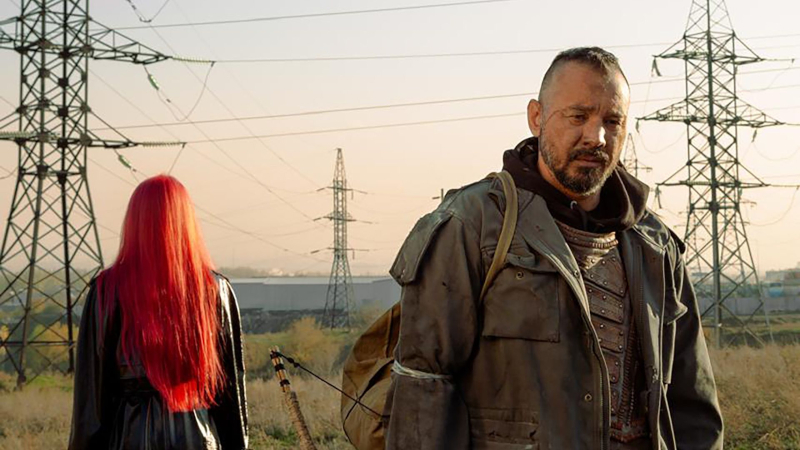Goldfinger said: “Mr. Bond, they have a saying in Chicago. ‘Once is happenstance. Twice is coincidence. The third time it’s enemy action.'” – Jeremy Clarke anticipates his third visit to Tallinn to cover the third year of its Critics’ Picks strand
When you see a film, or visit a film festival, you inevitably have expectations. The bar is at a certain level. The first time I went to POFF, I didn’t really know what to expect, except that our editor Victor Fraga spoke highly of it, which obviously boded well. Once there, I found the festival extremely friendly, perhaps due to its size (it’s the smallest of the A-list festivals), and a place where filmmakers, critics and other industry types happily mingle (that doesn’t happen in the larger festivals, I understand, and it doesn’t happen at most festivals I’ve had the pleasure of attending. Yet, it has happened in Tallinn on the two occasions I’ve visited, which is a real joy. Being a natural worrier, I fear that Tallinn may abandon this virtue at some point. Yet, so far, it hasn’t, and long may it continue in that vein).
Back to the level of the bar. The first year I went, 2022, the Critics’ Picks films were of a good standard overall – there was one I disliked and a couple that I thought particularly excellent (Dito Tsintsadze’s Roxy and Çigdem Sezgin’s Suna). There are festivals where most of the films are, frankly, an ordeal – so a rare, half-decent film tends to pick up prizes. However, as I say, the films in Tallinn’s 2022 Critics’ Picks selection were a lot better than that.
The second year, 2023, was a revelation. The first film was a five-star entry. Well, fair enough. And then, so was the second. And while not everything in the section was quite up to that level, most of the films were either fives (and there were a lot) or fours, with one solitary three. Out of 15 films in total, that’s pretty good going. I mean, I’ve been to a lot of other festivals, and this never happens. You usually get at least one if not a few duds.
…
.
A selection impossible to beat?
So this gives me a problem for the 2024 Critics’ Picks. A nice problem. Last year’s selection was so good that it seems churlish to expect this year’s to match it (such things are possible, and I will of course be delighted should that be the case), so I’m trying not to raise the bar unreasonably high and expecting three or four of the films to be outstanding.
Which brings us to this year’s programme. The first thing to say is that the number of films in this year’s Critics’ Picks is smaller – only 10 films, whereas last year had 15 (or 12 if you exclude the three that weren’t world premieres.) so it may be that the overall quality is high, whereas another five films may have lowered the standard overall.
This year, the selection appears to be weighted in favour of genre – the specific genres here being crime movies, dark movies and dramas. There appear to be no English language or British films this year (last year’s The Old Man and the Land has just come out in the UK as a blink and you’ll miss it, micro-release – while I’m glad it’s appeared in some shape or form here, and will likely put it on my top ten list of UK releases for 2024 – the fact that nothing else from last year has, as far as I’m aware, turned up in the UK is an indictment on the UK‘s distribution sector).

.
An early glance
It’s always difficult writing about films before you’ve seen them – we’ve all seen that trailer that looked fantastic, only to find that all the arresting moments are in the trailer and the rest of the film is devoid of merit. Yet glancing through the programme, which sadly has no animation this year (last year, Laszló Csaki’s Pelikan Blue was a gem), there may be live action features which mix animation in.
The most likely contender (and the one which looks most up my street) is Ecuadorean entry Fishgirl (Javier Cutrona; pictured at the top of this article), which has a promising still of a girl being followed through a street by a giant fish. The opening film this year is a black comedy from Portugal called Dreaming of Lions (Paolo Marinou-Blanco) which tackles the controversial subject of euthanasia (very topical here since an Assisted Suicide Bill is about to go through the UK Parliament and may well have done so by the time the film is screened). Japanese closing film The Brothers Kitaura (Masaki Tsujino) is all about killing your father, which sounds unsettling, to say the least.
Other films promise doppelgängers, obsession, sex, disappearance, death, and more. A good spread of countries is featured this year – Japan and Bhutan from the Far East (plus a Canadian entry in Burmese and Chinese); Spain, Portugal, Ecuador and Brazil from the Spanish and Portuguese-speaking territories; two crime movies from Italy. Khazakstan, Lithuania, the Czech Republic and Slovakia are also represented. Critics’ Picks head programmer Nikolaj Nikitin compares this year’s selection to a menu created by an experienced chef: it certainly reads like it. Festival director Tiina Lokk’s description of the section as “chamber-like cinema” further whets the appetite. I can’t wait.
…
.
Here is the full selection of 10 films:
- The Body (Italy, Vincenzo Alfieri);
- The Brothers Kitaura (Japan, Masaki Tsujino);
- Dreaming Of Lions (Portugal, Spain and Brazil, Paolo Marinou-Blanco);
- Fishgirl (Ecuador, Javier Cutrona);
- Hani (Canada, Hou Dasheng);
- I, The Song, (Bhutan, Norway, Italy and France, Dechen Roder);
- Johatsu (Lithuania, Lina Lužytė, Nerijus Milerius);
- Moor (Kazakhstan and France, Adilkhan Yerzhanov; pictured in the middle of this article);
- Nobody Likes Me (Czechia, Slovakia and France, Petr Kazda, Tomáš Weinreb); and
- Streets of Glória (Brazil, Felipe Sholl).
This article originally appeared on DMovies.org: you can find it here.
